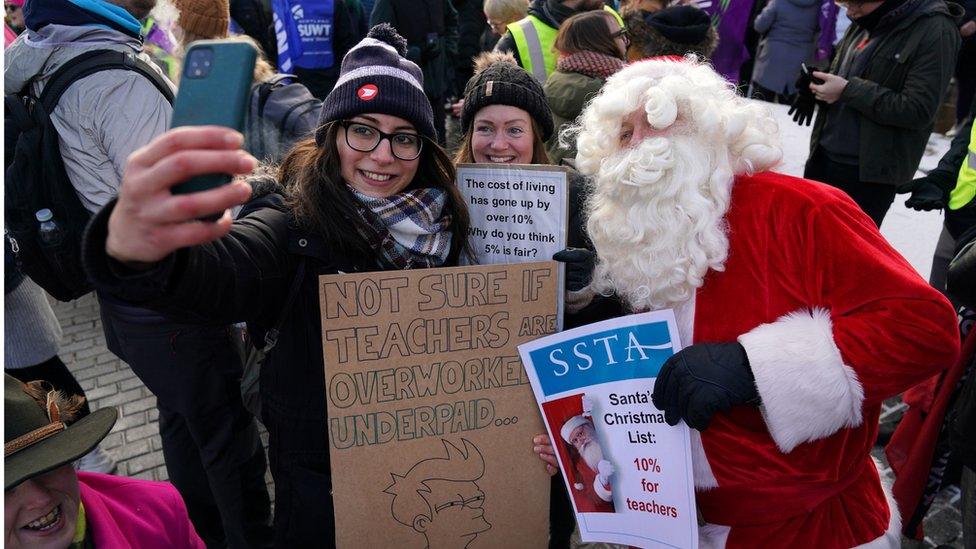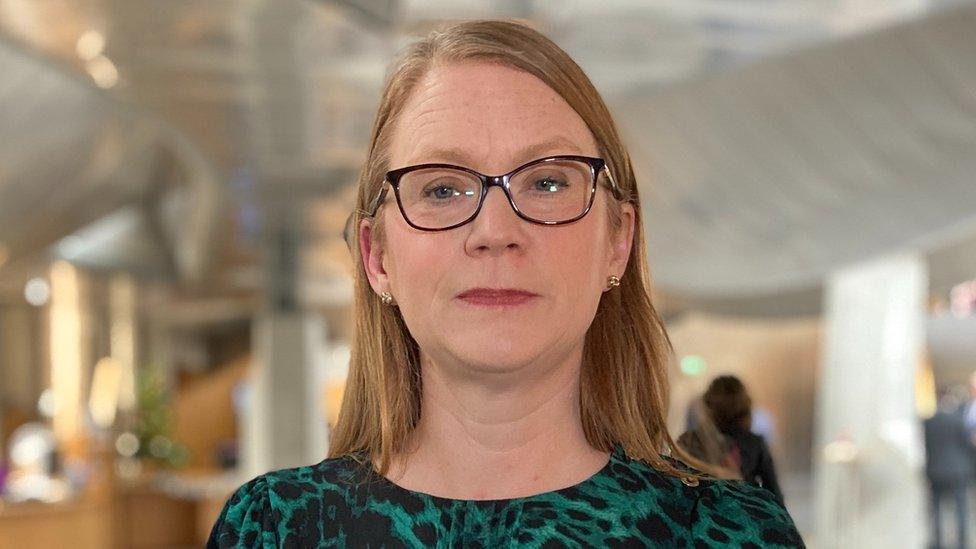SSTA teaching union announces new strike date
- Published

Members of the SSTA held strikes across Scotland earlier this week
Secondary teachers in Scotland have announced plans for further strike action early next year.
Members of the SSTA union will walk out on 11 January - the same day as the EIS union is also due to strike in secondary schools.
It comes after a strike by the EIS last month, with the SSTA walking earlier this week.
Their demands for a 10% pay increase have been dismissed as "unaffordable" by the Scottish government.
Speaking as it announced the latest strike, the SSTA warned that further dates could be announced in the coming days.
SSTA president Catherine Nicol said: "If the Scottish government values its teachers, it must be prepared to act and negotiate sensibly.
"We must have a pay offer that we can take to our members. If not, the SSTA is prepared to take strike action to obtain a fair deal and further our cause."
Teachers have already rejected a deal which would see most receive a 5% pay rise, although the lowest earning teachers would get a 6.85% increase.
Ms Nicol said so many of its members joining picket lines in freezing conditions on Wednesday and Thursday of this week" showed the strength of feeling there is against acceptance of the current pay offer".
Union members in 17 local authorities walked out on Wednesday, while staff in the other 15 council areas held a strike on Thursday - resulting in the partial closures of many secondary schools.

Education Secretary Shirley-Anne Somerville said she was very disappointed that teachers had rejected four different pay offers
The EIS strike on 24 November saw all but a handful of primary and secondary schools in Scotland close completely.
Ms Nicol said the action had sent a clear message to both the government and local council leaders at Cosla that they should "pay teachers properly".
She added: "Scottish secondary school teachers answered the call and stood together to fight for a fair and reasonable pay deal."
Education Secretary Shirley Anne-Somerville said the government remained "committed to a fair, sustainable settlement for Scotland's teachers".
But she said it was "very disappointing" that unions had rejected the latest pay offer, which was the fourth to have been put to them.
She said: "The request for a 10% increase for all teachers - even the highest paid - is not affordable within the Scottish government's fixed budget.
"While councils are responsible for managing the impact of industrial action, I expect schools to remain open wherever possible, so that disruption can be minimised.
"Any closures would follow risk assessments made in individual areas."


This is a significant escalation of the industrial action by teachers, but the level of disruption facing students has not increased.
The EIS union had already called out its members in secondary schools on 11 January which was likely to lead to their closure - just as it did a fortnight ago.
It is a conscious and deliberate decision by the unions to go on strike on the same day.
There were tactical arguments for choosing a different day to spread the impact of the disruption.
However, the unions will hope that by presenting a common front, they will send out a powerful signal.
Sharing a strike day also means that members of one union will not come under any pressure to cover for striking colleagues.